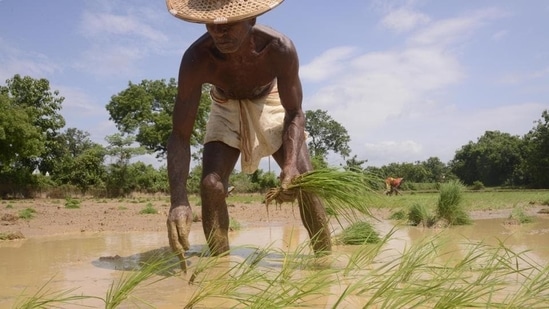India spends $3 billion each year on agricultural innovation; only 4% of it 'sustainable'
India will face significant challenges balancing food security needs with environmental and social sustainability outcomes by 2050.
India spends over $3 billion annually ($25 billion for the period 2010-2018) on agricultural innovation, including investments by the government, development partners, private sector, and private equity and venture capitalist firms. While this is substantial, the per capita spending on agricultural innovation is less than $2.5 per person per year, data shows.

The Indian government is the largest funder of agricultural innovation in the country by a wide margin and spends $25 billion annually on agriculture, of which about 10% is estimated to be towards innovation.
With India expected to be home to an estimated 1.6 billion people by 2050, the country will need to almost double its food production keeping in mind both the growing population and the demand for higher quality food. This will be a key challenge since agriculture is already a major driver of water scarcity, biodiversity loss, and carbon emissions in India, the case study by consulting firm Dalberg Advisors in partnership with the Commission on Sustainable Agriculture Intensification.
Unless agriculture production methods change substantially with a greater emphasis on sustainable agriculture intensification (in terms of environmental impact, human and social impacts), India will not be able to meet its food goals without severe damage to its environment.
This will require significant investments in sustainable agriculture systems in India and an urgent switch to more sustainable practices that are good for the environment, good for farming communities, and good for end-users in terms of nutritional outcomes.
Budgetary outlays are a good leading indicator of things to come and presently, only about 4% of India’s agricultural innovation spending has clearly defined sustainability intentions and goals according to the study.
The data also shows that, only about 4% to 5% of the $3 billion funding has clearly defined sustainability outcomes (measured as a combination of environmental, social, human outcomes) and is estimated to be $120 million annually or about 10 cents per person per year.
“Keeping in mind the environmental challenges of growing more food in India, substantially more innovation investments for sustainable agriculture are needed. Mandating frequent reporting of sustainable agriculture investments by different actors in a format that is transparent, consistent, and verifiable would be a first step towards ensuring we meet our climate and food security goals in parallel,” Nirat Bhatnagar, a partner at Dalberg Advisors said.
About 75% of the overall $3 billion in funding comes from government sources with more than 50% of this funding coming from the of agriculture ministry. The state governments and other ministries contribute the other 50%.
Areas that are underinvested for sustainable agriculture intensification include natural resource management (soil health, sustainable water, biodiversity) as well as investments in knowledge management and financing for sustainable agriculture.
In India, most of the public innovation funding, and consequently overall innovation funding, goes towards research institutes and government agencies
“The investment balance must change if we are to successfully tackle the key global challenges of food security, malnutrition, and climate action as well as address the Sustainable Development Goals by 2030. In a world that is rapidly undergoing climate change, investments in innovation that fail to take environmental impacts into consideration will not change the trajectory of agriculture rapidly enough to meet sustainability and climate targets,” PV Vara Prasad, CoSAI commissioner said.
Keeping in mind the environmental challenges of growing more food in India, a business-as-usual approach will not suffice, and substantially more innovation investments are needed in sustainable agriculture intensification.
Experts suggested that a coordinated approach to investing for sustainable agriculture that defines clear metrics, encourages collaboration between different categories of funders is likely to prove very useful going forward.



